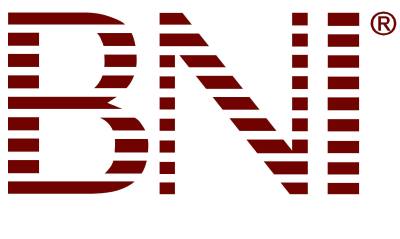TAX TOOLS & FINANCIAL CALCULATORS
All tools provided by CalcXML and the IRS
Tax Tools and Information Feed.
Choose your State to check on your Refund
Choose your State to find a Form or Publication
Important Tax Dates for 2025
IRS official tax dates you need to stay on top of your taxes.
FILING DATES
2025 E-filing Dates
The 2024 tax year main deadline for filing federal income tax returns is April 15, 2025
- January 31, 2025: Deadline for filing most 1099 forms. This includes the 1099-NEC (Nonemployee Compensation)
- February 28, 2025: Deadline for 1099 Paper Forms
- Individual Filers and Self-Employed Filers: April 15, 2025
- S Corp: March 15, 2025
- C Corp: April 15, 2025
- Single-Member LLCs: April 15, 2025
- Multi-Member LLCs: March 15, 2025
2024 / 2025 Estimated Tax Payment Dates
- Jan. 16, 2025 - Make last 2024 estimated tax payment
- April 15, 2025 - First 2025 estimated tax payment due
- June 17, 2025 - Second 2025 estimated tax payment due
- September 16, 2025 - Third 2025 estimated tax payment due
Tax Document Dates
- January 31st, 2025 - Deadline for employers to file Form W-2s with the IRS, unless filed electronically for 2024 forms
- January 31st, 2025 - Deadline for reporting payments to contract workers on Form 1099-MISC for 2024
State Refund Delivery Timetables
State
Refund Timetable
Alabama
Refunds are processed starting March 1 every year.
Alaska
No state income tax.
Arizona
Begins processing e-filed tax returns in mid-February.
Arkansas
Anti-theft measures may result in tax refunds not being
issued as quickly as in past years.
California
E-Filed returns will take up to 3 weeks. Some tax returns
need extra review for accuracy, so extra processing time may be necessary.
Colorado
Fraud detection and verification could delay individual
income tax refunds up to 60 days beyond the time frames of prior years.
Connecticut
No specific timeline provided for delivery of tax refunds.
Delaware
Expect 4–6 weeks from filing for your refund to be
delivered.
Florida
No state income tax.
Georgia
Most error-free e-Filed returns are processed within 5
business days of receiving the return. Most refunds are issued within 21 days
from the filed date.
Hawaii
It will likely take 9–10 weeks after you e-file your
tax return.
Idaho
e-Filers can expect refunds about 7 to 8 weeks after
receiving an acknowledgment that the state has the return.
Illinois
No specific timeline provided for delivery of tax refunds.
Indiana
Allow 2–3 weeks of processing time for your tax
refund.
Iowa
The anticipated time frame for refund processing is
30–45 days.
Kansas
No specific timeline provided for delivery of tax refunds.
Kentucky
Allow 2–3 weeks of processing time for a directly
deposited tax refund. Processing of all refunds may be delayed.
Louisiana
The expected refund processing time for returns filed
electronically is up to 45 days.
Maine
No specific timeline provided for delivery of tax refunds.
Maryland
No specific timeline provided for delivery of tax refunds.
Massachusetts
E-filed returns take up to 6 weeks to process.
Michigan
No specific timeline provided for delivery of tax refunds.
Minnesota
Every return received is different, so processing time
will vary.
Mississippi
E-filers should allow 10 business days before calling
about a refund. Returns filed early are usually processed more quickly than ones
filed closer to the due date.
Missouri
No specific timeline provided for delivery of tax refunds.
Montana
May take up to 90 days to issue your refund.
Nebraska
Please allow a minimum of 30 days to receive your refund
if you e-file an error-free return.
Nevada
No state income tax.
New Jersey
Use the Online Refund Status Service if you e-filed your
return at least four weeks ago.
New Mexico
E-filed returns claiming a refund are generally processed
within 6 to 8 weeks.
New York
No specific timeline provided for delivery of tax refunds.
North Carolina
Some refunds may take longer than normal, which is 6 weeks
for electronically filed returns.
North Dakota
Refunds may take longer than in the past. No specific
timeline provided for delivery of tax refunds.
Ohio
No specific timeline provided for delivery of tax refunds.
Oklahoma
If your return was filed electronically, please allow 6
weeks to receive your refund.
Oregon
Four weeks after the return is filed, the Oregon automated
telephone answering system can provide information about the current year income
tax refund.
Pennsylvania
No specific timeline provided for delivery of tax refunds.
Rhode Island
No specific timeline provided for delivery of tax refunds.
South Carolina
Most refunds are issued 6-8 weeks after you file your
return.
South Dakota
No state income tax.
Texas
No state income tax.
Utah
Wait 30 days if filed electronically.
Vermont
E-Filed returns have an expected timeframe of 6–8
weeks.
Virginia
E-Filed returns should get refunds in up to 4 weeks.
Washington
No state income tax.
West Virginia
Expect significant delay of your tax refund. Call
concerning your refund if it has been more than 10 weeks since your refund was
filed.
Wisconsin
If filed electronically, most refunds are issued in less
than 12 weeks.
Wyoming
No state income tax.
2024 Holiday Schedule
Date
Holiday
Monday, January 1st, 2025
New Year's Day (observed)
Monday, January 15th
Birthday of Martin Luther King, Jr.
Monday, February 19th
Washington’s Birthday
Monday, May 27th
Memorial Day
Wednesday, June 19th
Juneteenth National Independence Day
Thursday, July 4th
Independence Day
Monday, September 2nd
Labor Day
Monday, October 14th
Columbus Day
Monday, November 11th
Veterans Day
Thursday, November 28th
Thanksgiving Day
Wednesday, December 25th
Christmas Day
Tax Calculators - Provided by CalcXML
Taxes
- What is my potential estate tax liability?
- Federal income tax calculator
- Should I adjust my payroll withholdings?
- Will my investment interest be deductible?
- How much self-employment tax will I pay?
- Capital gains (losses) tax estimator
- Compare taxable, tax-deferred, and tax-free investment growth
- How much of my social security benefit may be taxed?
- What are the tax implications of paying interest?
- Should I itemize or take the standard deduction?
- What is my tax-equivalent yield?
- Tax refund estimator
- Tax freedom day
Automobile
- Lease or buy an automobile?
- Loan vs. 0% dealer financing?
- What would my auto payments be?
- Upgrade to a more fuel efficient vehicle?
- Auto loan: accelerated payoff
- How much vehicle can I afford?
College
- How much should I be saving for college?
- Can I pay back my student loans?
- Advantages of the Coverdell ESA
- Advantages of a 529 college savings plan
- The value of a college education?
- Payments on a parental (PLUS) loan?
- Live on campus, off campus or at home?
Home & Mortgage
- How much home can I afford?
- Should I refinance my home mortgage (break even)?
- Mortgage calculator
- Comparing mortgage terms (i.e. 15, 20, 30 year)
- Should I pay discount points for A lower interest rate?
- Should I rent or buy a home?
- Should I convert to a bi-weekly payment schedule?
- Compare a ‘no-cost’ versus traditional mortgage
- What are the tax savings generated by my mortgage?
- Which is better: fixed or adjustable-rate mortgage?
- Adjustable rate mortgage calculator
- How do closing costs impact the interest rate?
- Compare an interest-only versus traditional mortgage
Paycheck & Benefits
- How much is my company bonus after taxes?
- How will payroll adjustments affect my take-home pay?
- Convert my salary to an equivalent hourly wage
- Convert my hourly wage to an equivalent salary
- Future value of my employee stock options?
- Exercise my “in-the-money” stock options?
- What may my 401(k) be worth?
- Impact of increasing my 401(k) contribution?
- What may my 457 Plan be worth?
- Impact of increasing my 457 Plan contribution?
Retirement
- Will retirement impact my living expenses?
- How much will I need for retirement?
- Are my current retirement savings sufficient?
- Social Security retirement income estimator
- How does inflation impact my retirement income needs?
- I’m retired, how long will my savings last?
- When should I begin saving for retirement?
- Convert discretionary expenses to savings?
- How much retirement income may my 401(k) provide?
- Compare a Roth 401(k) to a Traditional 401(K)
Cash Flow
- Does inflation impact my standard of living?
- How much am I spending?
- How much do I need for emergencies?
- Pay down debt or invest more?
- How long will my money last?
- Should my spouse work?
- What is my current net worth?
- What is my projected net worth?
- What is my current cash flow?
- What is my projected cash flow?
- Value of reducing or foregoing expenses
- Historical inflation – compare purchasing power
Credit
- How long will it take to pay off my credit card?
- How long until my loan is paid off?
- What are my loan payments?
- What is the balance owing on my loan?
- Consolidate my personal debt?
- Re-structuring debts for accelerated payoff
- Cash up front or payments over time?
- Impact of making extra debt payments?
- Pay off debts or invest the money?
- Estimate my credit score
Insurance
- How much life insurance do I need?
- What is my life expectancy?
- What are my needs for burial and final expenses?
- How much disability income insurance do I need?
- What are the chances of becoming disabled?
- What are my long-term care insurance needs?
- How much will I earn in my lifetime?
- What are the tax advantages of an annuity?
- How long will my current life insurance proceeds last?
- What is the future value of an annuity?
- Which is better, comprehensive plan or high-deductible plan with HSA?
- Compare a taxable investment to a tax-deferred investment
Qualified Plans
- Evaluate my company pension payout options
- How much can I contribute to an IRA?
- Retirement income from my IRA provider?
- Convert to a Roth IRA?
- Qualified plan is worth what retirement?
- Current year required minimum distribution?
- Projected required minimum distributions?
- Lump sum distribution options?
- Maximize my employer 401(k) match?
- Impact of borrowing from my 401(k) plan?
- Impact of early withdrawal from my 401(k)?
- I’m self-employed, how much can I contribute to a retirement plan?
- Net Unrealized Appreciation (NUA) vs. IRA Rollover?
Savings
- Becoming a millionaire
- Income generated by a savings plan
- How long will it take to double my money?
- How long until my savings reach my goal?
- Save now vs. save later
- How much should I save to reach my goal?
- What will my current savings grow to?
- Calculate rate of return
- How do taxes and inflation impact my return?
- What is my effective annual yield?




